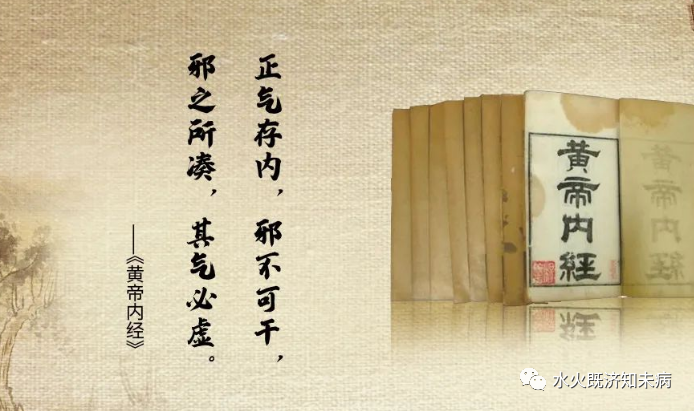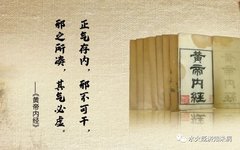 The occurrence and development of malignant tumors are due to the action of external carcinogenic factors such as chemical, physical, and biological agents on the body, leading to mutations in certain cells. If the body’s immune function is low or lacking, it cannot timely eliminate mutated cells or prevent the blind proliferation and spread of these cells, resulting in the formation and rapid development of malignant tumor tissues, which destroy normal tissues and organs, causing a series of severe consequences. In other words, the quality of immune function is an important factor in the occurrence, development, and prognosis of tumors.
The occurrence and development of malignant tumors are due to the action of external carcinogenic factors such as chemical, physical, and biological agents on the body, leading to mutations in certain cells. If the body’s immune function is low or lacking, it cannot timely eliminate mutated cells or prevent the blind proliferation and spread of these cells, resulting in the formation and rapid development of malignant tumor tissues, which destroy normal tissues and organs, causing a series of severe consequences. In other words, the quality of immune function is an important factor in the occurrence, development, and prognosis of tumors.
There are many methods in TCM for treating cancer, and the four major principles of TCM for treating tumors are clearing heat and detoxifying; softening hardness and dissipating masses; invigorating blood and resolving stasis; and strengthening the body and nurturing the root. However, the treatment of cancer cannot escape the principle of “strengthening the body and expelling pathogens” in the process of TCM treatment for tumors. 1. TCM believes that the root cause of cancer is the deficiency of the righteous qi and the presence of pathogenic factors. Strengthening the body and expelling pathogens is one of the basic treatment principles of TCM and an important component of the holistic view. Although cancer occurs in a specific local tissue or organ, the reactions caused by cancer are systemic, manifested as the depletion of qi and blood in the organs, destruction of tissues, and dysfunction. Therefore, one cannot focus solely on the local area while neglecting the whole. As early as in the “Huangdi Neijing” (Inner Canon of Huangdi), it was pointed out: “When the righteous qi is preserved within, pathogens cannot invade.” “Wherever pathogens gather, the qi must be deficient.” The human body is an organic whole, and the reason why cancerous toxins lead to disease is due to insufficient righteous qi. The deficiency of righteous qi and the presence of pathogenic factors are important factors in the occurrence of cancer, with deficiency being the root and pathogenic factors being the manifestation. On the basis of righteous qi deficiency, internal stasis and toxins develop, leading to dysfunction of the organs and abnormal circulation of qi and blood, causing physiological and pathological products to accumulate within the body, resulting in cancer. Why is it that during the treatment of cancer, there are often cases where, after a breast cancer patient has had her breast removed, cancer cells metastasize to the lungs? After the left lung tissue is removed, cancer cells metastasize to the right lung or even to the brain; after the lower limbs are amputated, metastasis occurs in the abdomen, and after the abdominal masses are cleared, metastasis occurs in the chest, etc. Such treatment methods that only address the local area without considering the whole, and only focus on expelling pathogens without strengthening the body, will never conquer cancer. Therefore, it is essential to pay attention to the whole, protect the body’s righteous qi, treat the disease by addressing its root, and enhance the patient’s resistance to disease. The famous Qing Dynasty physician Li Zhongzi also said: “The accumulation of disease is due to insufficient righteous qi, allowing pathogenic qi to take hold.” “Righteous” refers to the patient’s own immune function and resistance to disease; “pathogen” refers to malignant tumors. The combination of strengthening the body and expelling pathogens means that in the process of treating malignant tumors, various methods are used to eliminate and control malignant tumors while also mobilizing the body’s own resistance to disease, striving for better therapeutic effects. Clinically, the common treatment methods for eliminating and controlling the growth of malignant tumors are the methods of “expelling pathogens,” which mainly include chemotherapy, radiotherapy, and surgical treatment. Chemotherapy and radiotherapy can kill cancer cells, but their selectivity in harming cells is not strong, and while eliminating tumor cells, they also harm the body’s normal cells, including those with immune functions. Therefore, during treatment, the patient’s immune function may be damaged to a certain extent. Thus, when treating malignant tumors, it is essential to adhere to the principle of combining expelling pathogens with strengthening the body. In recent years, clinical oncologists have increasingly emphasized maintaining the immune capacity of cancer patients, their anti-cancer ability, and the ability to adjust the internal environment of the body. The development of tumor immunotherapy in recent years can enhance the patient’s immune function and is increasingly valued and favored by clinical doctors. Traditional medicine, primarily based on TCM, can improve the general condition of patients and enhance their resistance to disease, and its clinical application is very widespread. 2. Strengthening the body and expelling pathogens must involve tonifying the spleen and benefiting the stomach. The ancients said: “In all seasons and diseases, the stomach qi is fundamental.” The strength of the body’s righteous qi is closely related to the spleen and stomach, which are the foundation of postnatal life and the source of qi and blood production. When the spleen and stomach are functioning well, qi and blood are abundant, righteous qi is vigorous, and the protective and nutritive qi is well-regulated, there will be no disease! Zhang Zhongjing in the “Jinkui Yaolue” proposed the establishment of the middle qi in complex situations where both yin and yang qi and blood are insufficient, creating the Xiao and Da Jian Zhong Decoction to strengthen the qi of the spleen and stomach, thereby enhancing the patient’s constitution and allowing the righteous qi to drive out the pathogenic factors. How to strengthen the body and expel pathogens? It is only on the basis of tonifying qi and strengthening the spleen, and nurturing the righteous qi, that one can combine the results of modern medical pharmacological research, using those Chinese herbs with anti-cancer components that are effective for specific organ cancers. For example, for gastrointestinal cancers, one can combine herbs that have good efficacy against malignant tumors of the digestive tract on the basis of tonifying qi and strengthening the spleen, such as: Euryale (Yi Yi Ren), Curcuma (E Zhu), Gecko (Ge Jie), and others. For pulmonary malignancies, on the basis of tonifying qi and strengthening the spleen (nurturing earth to generate metal), one can add Chinese herbs effective for lung cancer, such as: Solanum (Long Kui), Isatis (Dong Ling Cao), and others. Only in this way can good therapeutic effects be achieved, and at least the patient’s lifespan can be extended. However, some doctors, especially those specializing in cancer treatment, use so-called specialized cancer prescriptions for treatment. They simply combine all herbs with anti-cancer components into a specialized formula, regardless of the type of cancer or the constitution of the patient, resulting in patients with already weak constitutions and poor spleen and stomach conditions worsening after taking the medicine. Why is this? This is because they do not understand the true essence of TCM treatment; the holistic view, syndrome differentiation, and treatment. They have committed the error of “deficiency on deficiency,” damaging the stomach qi. Once the stomach qi is damaged, all medicines become ineffective, righteous qi is insufficient, and the pathogenic factors develop, delaying the condition and harming the patient, yet they remain confused and perplexed. 3. Typical Cases (1) Case 1: Mr. Chen, 56 years old, suddenly felt discomfort in the esophagus while swallowing one day in May 2003, experiencing pain behind the sternum when eating hard food. He went to a county hospital where an electronic gastroscopy and pathological biopsy confirmed a diagnosis of lower esophageal cancer. Afterward, he was re-examined at a certain hospital in Xi’an and still diagnosed with esophageal cancer. After seeing an advertisement for a specialized cancer treatment hospital, he went there for treatment, but after taking Chinese medicine for three months and spending over ten thousand yuan, his condition not only did not improve but worsened. The medicines he took were all aimed at breaking qi, breaking blood, dissipating masses, and clearing heat and detoxifying, which were so-called specialized cancer medicines. Upon examination, the patient presented with general fatigue, a pale complexion, difficulty swallowing, increased pain behind the sternum when eating hard food or overeating, abdominal distension, occasional belching, dry mouth without thirst, a red tongue with thick greasy coating, and a slippery pulse. The diagnosis was: Spleen and stomach qi deficiency, stasis and toxin accumulation. The treatment should be: Tonify qi and strengthen the spleen, then combine with anti-cancer effective herbs. Prescription: Codonopsis (Dang Shen) 15g, Atractylodes (Bai Zhu) 20g, Poria (Fu Ling) 15g, Astragalus (Huang Qi) 20g, Tangerine Peel (Chen Pi) 10g, Pinellia (Ban Xia) 10g, Curcuma (E Zhu) 12g, Chicken Inner Gold (Ji Nei Jin) 12g, Gecko (Ge Jie) 12g, August Orchid (Ba Yue Zha) 15g, Hedyotis (Bai Hua She She Cao) 30g, Job’s Tears (Yi Yi Ren) 30g, Licorice (Gan Cao) 6g, and Red Earth (Dai Zhe Shi) 15g, decocted for 10 doses. After 10 days, the patient returned for a follow-up, and there was some improvement in his condition. The dosage of the strengthening herbs was increased, and he was instructed to take 2 geckos daily, divided into two doses, morning and evening. Two months later, there was a significant improvement; he could eat regular food without pain, and belching and reflux had noticeably decreased. His facial complexion improved, and after continuing the treatment for three months, a gastroscopy showed a significant reduction in the tumor, and the patient was very pleased and is still alive today. (2) Case 2: Mr. Zhang, 51 years old, first diagnosed in early February 2004, had been coughing for a month, experiencing chest tightness, shortness of breath, and excessive phlegm, with poor appetite and fatigue. Initially, he did not pay much attention and was treated at a local clinic, diagnosed with bronchitis and given some antibacterial and anti-inflammatory cough medicines, but the effect was poor and his condition worsened, leading him to seek treatment. Upon examination: The patient had a pale complexion, fatigue, cough with shortness of breath, chest tightness, and excessive phlegm, with chest pain during coughing and occasional hemoptysis. The tongue was pale with a thick greasy coating, and the pulse was slippery. A chest X-ray showed a mass shadow in the right upper lobe of the lung with unclear margins, suspected to be lung cancer, and confirmed by CT scan. The diagnosis was: Lung and spleen deficiency, pathogenic toxin obstructing the lungs. The treatment principle was: Tonify the spleen and benefit the lungs, resolve stasis and dissipate masses, clear heat and detoxify. Prescription: Codonopsis (Tai Zi Shen) 20g, Atractylodes (Bai Zhu) 15g, Poria (Fu Ling) 15g, Polygonatum (Huang Jing) 15g, Astragalus (Huang Qi) 15g, Fritillaria (Bai Bu) 12g, Solanum (Long Kui) 20g, Half-branch Lotus (Ban Zhi Lian) 20g, Job’s Tears (Yi Yi Ren) 30g, Isatis (Dong Ling Cao) 15g, and Seven-leaf One-branch Flower (Qi Ye Yi Zhi Hua) 12g, with Licorice (Gan Cao) 6g, decocted for 15 doses. After half a month, the patient returned for a follow-up, and there was slight improvement in his condition. The prescription was slightly adjusted, and he continued taking it. Three months later, he returned for a follow-up, and his condition had greatly improved. A follow-up X-ray showed a significant reduction in the shadow in the right lung, normal appetite, and increased energy. The patient was very confident and continued with the adjusted prescription for another two months, and he is still alive today, participating in light physical labor daily. 4. Conclusion In summary, it is evident that strengthening the body and expelling pathogens is an extremely important principle in cancer treatment. Strengthening the body is anti-cancer, and expelling pathogens must be organically combined. In the early stages of cancer, when the righteous qi is not too deficient, the focus should be on expelling pathogens, with some support for strengthening the body. If the righteous qi is already deficient and the pathogenic toxins are more pronounced, the focus should be on strengthening the body while also considering expelling pathogens. In any case, one must observe the pulse and symptoms, and apply syndrome differentiation in treatment. This is a platform for sharing TCM knowledge; syndrome differentiation and treatment. Friends who love TCM, please follow and share!!!


